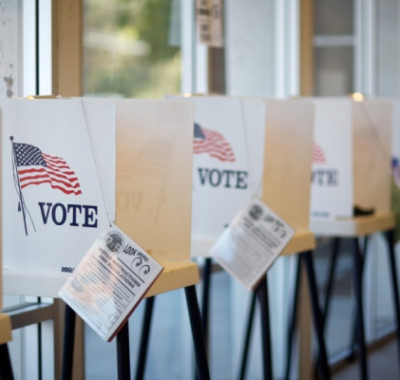Moore: GE Decision Shows RI Must Be Business Friendly
Monday, January 18, 2016
Outside of the fan boys and fan girls in the Rhode Island media and government, it was really not much of a surprise to anyone that General Electric chose to move its corporate headquarters, and the 800 good paying jobs that come with it, to Boston instead of 'good ole Little Rhody.'
In the end, the truth is that GE was never seriously considering a relocation to Rhode Island, despite the diplomatic rhetoric from the company's leadership. (New York was probably a more realistic option, and stronger competition to the lure the Connecticut based Fortune 10 company.)
When you get down to brass tacks, the City of Boston was just a more attractive option judging by almost every metric.
GET THE LATEST BREAKING NEWS HERE -- SIGN UP FOR GOLOCAL FREE DAILY EBLASTBoston’s Advantages
Boston could offer a better incentive package than Rhode Island. The Boston Globe reports that the state of Massachusetts offered an incentive package worth $120 million. It's astonishing to think that the state taxpayers of Massachusetts could lure one of the most successful companies in the world with just $120 million when Rhode Island loaned 38 Studios $75 million and was considering giving the Pawtucket Red Sox, whose primary economic development is people pouring beers and selling peanuts, over $100 million.
These facts suggest that Rhode Island still doesn't have its priorities straight. Further, Massachusetts was named the most innovative state in the country according to a recent article in Bloomberg Business. The achievement was mostly due to Boston's Route 128 and its biotech industry. That, combined with the fact that the non-profit Tax Foundation, ranked Massachusetts the 25th most business friendly state in the nation almost assuredly weighed heavily on GE's decision to relocate there.
Rhode Island’s Weaknesses
Surprisingly, Rhode Island also scored well in the survey, ranking in as the 14th best state in the nation for innovation. Despite the high ranking, we can still do better and build upon what is undoubtedly one of our strengths. It doesn't help that the City of Providence is constantly harassing the strong universities and colleges the city does boast of for more tax revenue in the form of "payments in lieu of taxes". Sure, the colleges should be paying their fair share, but as the GE move to Boston highlights, colleges and universities do a lot for the local economy. The relationships between our capital city (and state) and colleges needs to be symbiotic--not adversarial.
What Rhode Island does have is an adversarial relationship with the business community. The state of Rhode Island, according to the nonprofit Tax Foundation, has the 45th worst business tax climate in the nation. That's not exactly enticing for a business to relocate into Rhode Island, despite the different tweaks and changes the state has put in place over the years. Massachusetts, on the other hand, ranked as the 24th best business tax climate in the nation, which admittedly isn't great, but it's not terrible either. Score one more for The Bay State.
New Anti-Business Measures
What's most disconcerting is the fact that our state leaders don't seem to understand that Rhode Island needs more than rhetoric to entice businesses to relocate and expand here. Both Governor Gina Raimondo and House Speaker Nicholas Mattiello are tremendous at paying lip service to their interest in improving the state's economy, their actions, at least at times, say others.
For instance, does a brand new tax on vacation rental homes suggest a pro-business attitude or an anti-business mindset? Does a new tax on health insurance suggest our state leaders are concerned about improving the economy? And does the creation of new toll gantries across the state imply that Raimondo and Mattiello are pro-business, or people who don't mind making it harder here for truckers to survive? All of those questions are obviously rhetorical. But it's important that Rhode Islanders don't get hypnotized by their increasingly Orwellian pro-business (empty) rhetoric.
Foster Innovation
None of Governor Raimondo's anti-business decisions would have necessarily been a deal breaker for the company to locate here. But they certainly don't move the proverbial football up the field. Let's face it: they're demerits to the state's economy.
Governor Raimondo is correct to assert that we need to foster an innovation economy. The way to do that however, is not with new toll booths or taxes on health insurance. The way to achieve that end is to cut taxes and remove regulations. And yes, here's the ugly truth: in order to cut taxes, we'll need to cut spending. There's no other way around it. And that may upset special interest groups. But big feats require fortitude--something we're in short supply of in The Ocean State.
That may not be enough to land the next GE, but it certainly won't hurt. And I guarantee the state would see more economic development from other companies relocating here, or expanding. In other words, we'd be moving in the right direction.
Russell J. Moore has worked on both sides of the desk in Rhode Island media, both for newspapers and on political campaigns. Send him email at [email protected]. Follow him on twitter @russmoore713.
Related Slideshow: Leaders on Fixing RI’s Economy
Recent rankings put Rhode Island #37 for business climate. And while that takes the state out of its most bottom-dwelling days, leaders across RI have weighed in as to what could futher the state moving forward.
Related Articles
- Moore: Statewide Teacher Contract Will Benefit RI
- Moore: Elorza’s Demotion of Fire Chief is a Head-Scratcher
- Moore: Elorza, Firefighters Must Reach Settlement on Platoon Shift
- Moore: Was Chafee’s Presidential Bid Successful?
- Moore: Toll Plan Will Radically Restructure RI Borrowing
- Moore: Bring Back The Dancing Cop
- Moore: Rhode Island Needs a Holiday!
- Moore: End Providence Pension Spiking
- Moore: Unlike RI, Puerto Rico Takes on Ratings Agencies
- Moore: Relocation Expert Says RI Can Lure GE
- Moore: Fix the 6-10 Connector For Freedom’s Sake
- Moore: My RI Christmas Wish List


















